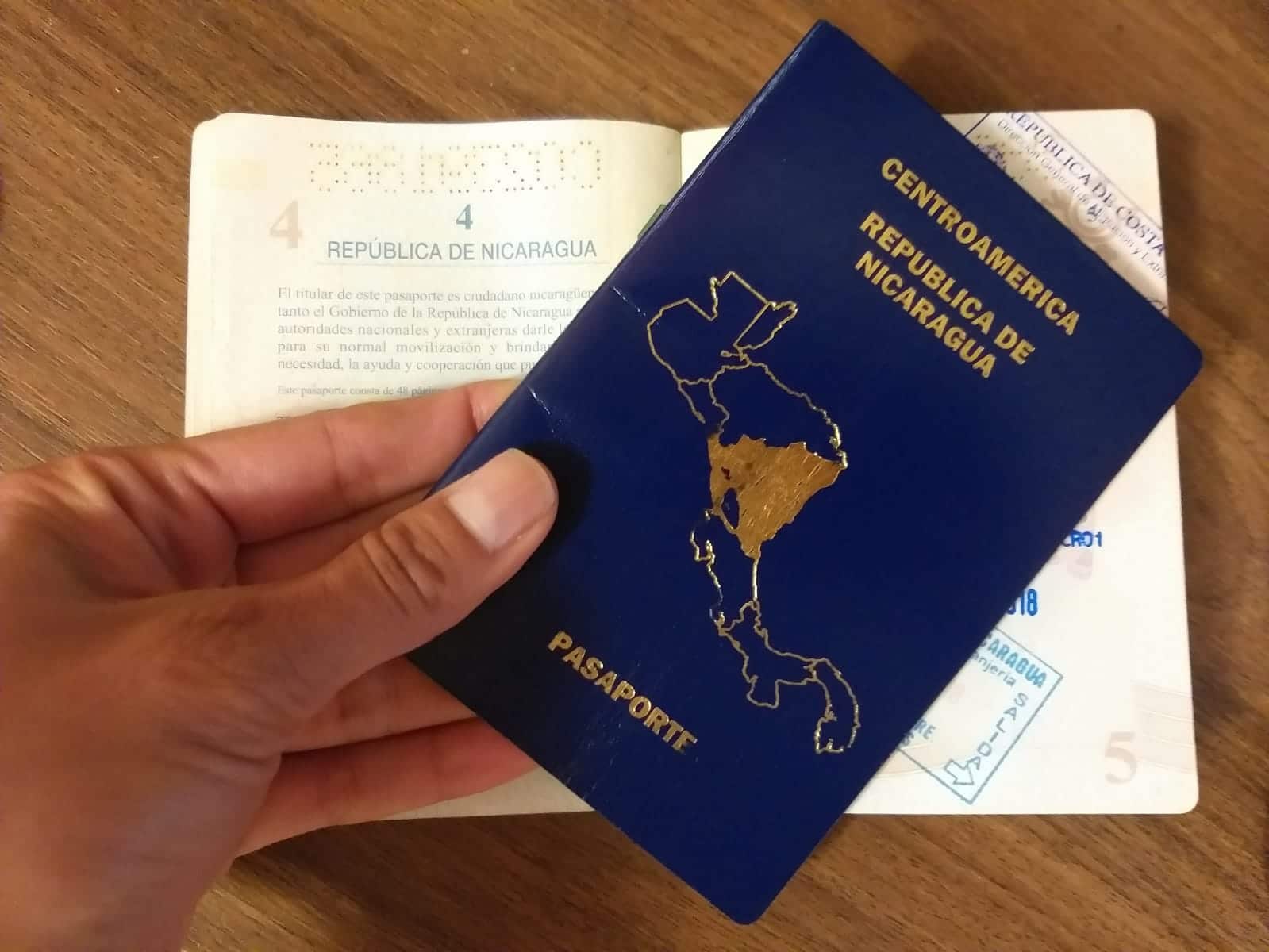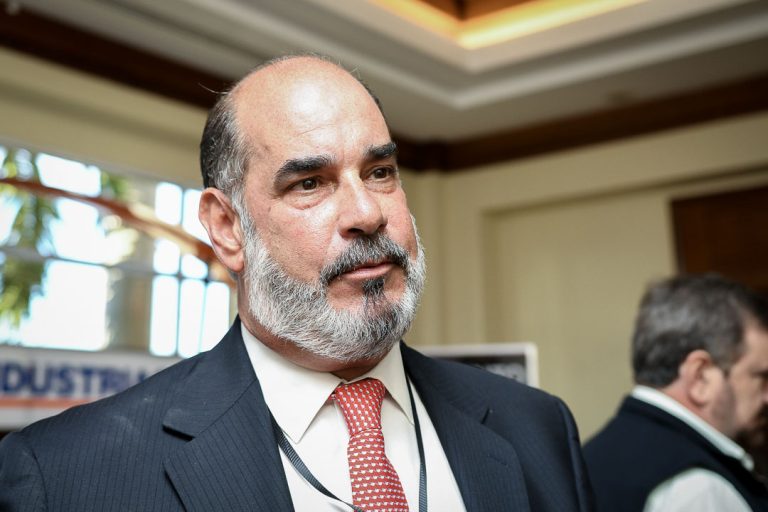3 de agosto 2019

Nicaragua: Public Employees Hindered from Traveling to USA

PUBLICIDAD 1M
PUBLICIDAD 4D
PUBLICIDAD 5D
The Civic Alliance has an electoral reform project and seeks further input of other organizations to ensure consensus

Michael Healy, president of the farm producers’ organization UPANIC. Photo: Carlos Herrera / Confidencial
The Civic Alliance already has a comprehensive proposal for electoral reforms, which it is presenting to various sectors in search of the necessary consensus that gives it validity and legitimacy, explained Michael Healy, member of the Alliance, in an interview with Cindy Regidor, for the Esta Noche program, which is transmitted online.
The businessman explained that the Alliance is part of an advisory group, in which there are national experts on the subject, who have helped shape the document, to seek an electoral solution to the political crisis in the country.
The basis of this document is the agreement of understanding between the Government of Nicaragua and the Organization of American States (OAS), which details the technical and political reforms necessary to regain confidence in the electoral system.
The consultative group has added other issues, such as the creation of a mechanism to elect new magistrates and a multitude of technical level officials, while discussing the possibility of validating the right to vote of Nicaraguan citizens residing abroad.
“We are preparing this proposal and presenting it to all sectors so that they know it and there are more people who support it. We want the Government to understand that this is the route to have a transparent electoral system, in which there is no chance for electoral fraud, and that we can really choose our leaders and our representatives, both in the Assembly, and in the different powers of the State,” said Healy.
“We seek to set the minimum points of agreement so that this negotiation is a success, and we can have the transparent elections we long for,” he added.
Although the regime wants to negotiate its own reforms by itself, or with the complicity of small allied parties, Healy warns that such a thing won’t wash and that if it occurs, they will not have international validity or recognition, in accordance with the OAS resolutions.
The OAS “recognizes that these electoral reforms have to be at the dialogue table, and with the Civic Alliance”, which will seek the consensus of all sectors, including political parties, “to have the support of the entire population”.
Even though there are sectors that criticize the business persons for having enjoyed an extensive honeymoon with the regime, while also demanding they show greater committment at the present time, the agricultural producer was also clear in saying that “both business people, and Nicaraguan citizens in general, know that with Daniel Ortega in charge, the economy of the country will not survive until 2021.”
Healy said “the private sector supports early elections” [they are currently scheduled for November, 2021]. It is the only way to resolve the country’s political and economic crisis, he said.
Grim Projections for the Nicaraguan economy
Healy points out that there are several projections from economists. The NGO Funides forecasts a contraction of -5.4%, while Copades, estimates -9.4%. They forecast a loss of 220,000 jobs by the end of 2019, stressing the urgency to advance the elections as the only way to solve the crisis.
“Without investment, fresh funds will not arrive to revive this economy. Therefore, the advancement of elections is essential for the country to take its democratic course and for Nicaraguans to start working to restore the economy of the country. However, all sectors need to participate in this. We need widespread participation in the decisions to be taken for the future,” insists Healy.
“It has to be an inclusive agreement, not exclusive. We must not repeat the mistakes of the past. We have an opportunity to create the Nicaragua that we have longed for, and we as business people will continue to be adamant, because that is the real way out of this crisis,” he said.
“Every day that Daniel Ortega is still in power, the crisis deepens more. He must understand that it is time to step off. As Somoza understood at the time, Ortega has to open his eyes and admit that the people of Nicaragua are no longer with him, that it is time to change this, so that a modern democracy comes, and we do not return to this situation in 30 or 40 years,” he warned.
Healy also explained that the consequences of the measures issued this year will be more evident in 2020.
“The real blow will be in agro-exports, and it will affect the macroeconomy. Next year there will be a large decrease in exports of peanuts, coffee, and certain items that are being hit by that increase of 20%, 25%, and up to 30% of their production costs,” as a result of the tax reform and that of social security.
“The coffee sector is in its worst moments, not only because of international prices, but also because of pests, weather… there are crops such as beans and corn, which in the first stage of this rainy season have been affected by the lack of rains in some areas, while in others there’s been a surplus,” he said.
The producer also took the opportunity to dismantle the thesis that the sanctions directly affect the average citizen.
“Are there international sanctions against ordinary citizens? No. They are individual sanctions that affect people who have violated Human Rights. Members of a government in which there has been a violation of human rights and corruption. The person sanctioning Nicaraguans is Ortega, by issuing laws that affect us more and more every day,” noted Healy.
Adding pressure
The negotiating team of the Civic Alliance and their advisors made a solo appearance at the dialogue venue of the INCAE business school in Managua. They knew that their counterpart, the government, was not going to attend. The no-show served to corroborate that the Government has no will to dialogue.
“The Alliance sent him a letter so that he, as president, would know that we are willing to sit down and talk to solve this problem, but also so that the international community could see that president Ortega and Rosario Murillo have no will to dialogue and look for those solutions,” he said.
Healy added that a new impasse in the negotiations, however extensive, does not empty the meaning of or delegitimize the role of the Civic Alliance, whose task he said is not only to dialogue.
“With the sectors that are not at the table, we follow up on the issue of aggressions, persecutions, political prisoners, etc., working together with other organizations in the daily monitoring of what is happening in the national territory,” he explained.
On the issue of political prisoners, Healy explained that the strategy is to combine national mobilization with international diplomatic efforts, to put more pressure on the Government, until the goal of achieving the freedom of all political prisoners is achieved.
“We are also working to strengthen all sectors that make up the Alliance and for the eventual incorporation of new members, allowing us to build the unity we will need when we get to the electoral issue,” he said.
Healy believes “there has to be a great alliance of all sectors, so that everyone can take their proposal which is what the people of Nicaragua expect, and thus achieve the triumph of democracy in the country.”
Archivado como:
PUBLICIDAD 3M
Periodista nicaragüense, exiliado en Costa Rica. Durante más de veinte años se ha desempeñado en CONFIDENCIAL como periodista de Economía. Antes trabajó en el semanario La Crónica, el diario La Prensa y El Nuevo Diario. Además, ha publicado en el Diario de Hoy, de El Salvador. Ha ganado en dos ocasiones el Premio a la Excelencia en Periodismo Pedro Joaquín Chamorro Cardenal, en Nicaragua.
PUBLICIDAD 3D